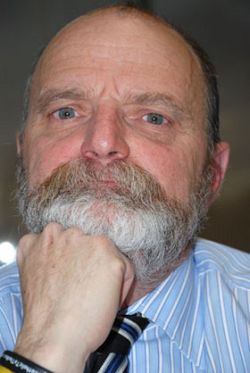Ron Yengitch: Why We Defend the Guilty

SALT LAKE CITY — Criminal Defense Attorney Ron Yengitch, a member of Cathedral Parish, has a forgiveness story. It involves a woman whose son was killed by one of Yengitch’s clients. During the sentencing phase of the trial, the victim’s mother was given the opportunity to speak. Instead of railing against the perpetrator of the terrible crime, she spoke instead of healing. "She told the judge my client had apologized and that putting him in prison for life was not going to help her heal," Yengitch said. "It wouldn’t bring her son back." Courtroom scenes like that happen periodically, Yengitch said, and they are graced moments. "People think jail or prison time is a slap on the wrist," he said in an interview with the Intermountain Catholic. "There are no slaps on the wrist in American justice system any more. There are kicks in the crotch or slaps on the back of the head. Then, there are actual executions, but there are no slaps on the wrist." Yengitch said the politicians who have declared a "war on crime" have taken the emotion out of the criminal justice system. "Effectively what we’re saying is that we are not looking at the individual, we are paying no attention to the individual. We reject the individual and lose sight of any penance that can lead to reconciliation." Yengitch said there are politicians out there and those who support them, even members of the Catholic Church, who don’t challenge their stand on abortion rights and capital punishment. "Those people aren’t listening to the same homilies I’m listening to." Yengitch’s favorite Scripture story is the one about the woman caught in sin. Everyone in the village is going to stone her, but Jesus arrives. He bends down and writes something in the sand. "Scripture doesn’t tell us what Jesus wrote that day, but I’m sure he wrote the word ‘mercy,’" he said. "When we don’t look at cases, even the worst ones, with a sense of mercy, we’re doing the Church and society a disservice." He defends guilty people, Yengitch said, because the law says everyone deserves a strong defense, "and it’s the right thing to do. I just hope there’s an advocate for me somewhere out there. I pray to my particular patron saint every day to help me be as good as I can be." Incorporating mercy into our lives helps make us the best we can be, said Yengitch. "Mercy also keeps us from becoming like the Sadducees who always thought they were better than everyone else." In the Scriptural story, Jesus was advocating for the woman caught in sin, he said. "Jesus was acting as a lawyer. That’s the beauty of it. Without his mercy there would have been no justice, and I don’t think the woman was unmoved." An articulate voice in Utah and other states against the use of the death penalty, Yengitch is just as critical of mandatory minimum sentences, which offer more potential for showing no mercy. "We, as Catholics, should be better than that," he said. "Mercy multiplies. It has a ripple effect." Yengitch is saddened and angry that the United States has more people in prison than almost any other country in the world. A lawyer for 33 years, he said he during his career in Utah, he has not seen one state treatment facility built for drug addicts, "but we are building more and more prisons. It doesn’t say much for us." Showing mercy does not mean we are taking guilt lightly, he said. "Sometimes even trials can be therapeutic, but guilt is often relative to circumstances. Who is the drug addict and who is the supplier? Most people sell drugs to supply their own habits. What would happen if we, out of mercy, offered treatment? Yengitch has a strong personal devotion to the Sacred Heart of Jesus. "Today, we look at a bleeding heart as something or someone negative to us. As Catholics we should understand that the word mercy comes from the Latin – to place in the heart – misere cordia. I wear a Sacred Heart medal right next to my medal of St. Francis of Assisi. I say his prayer daily: "Lord, make me an instrument of your peace.’"
© Copyright 2025 The Diocese of Salt Lake City. All rights reserved.

Stay Connected With Us